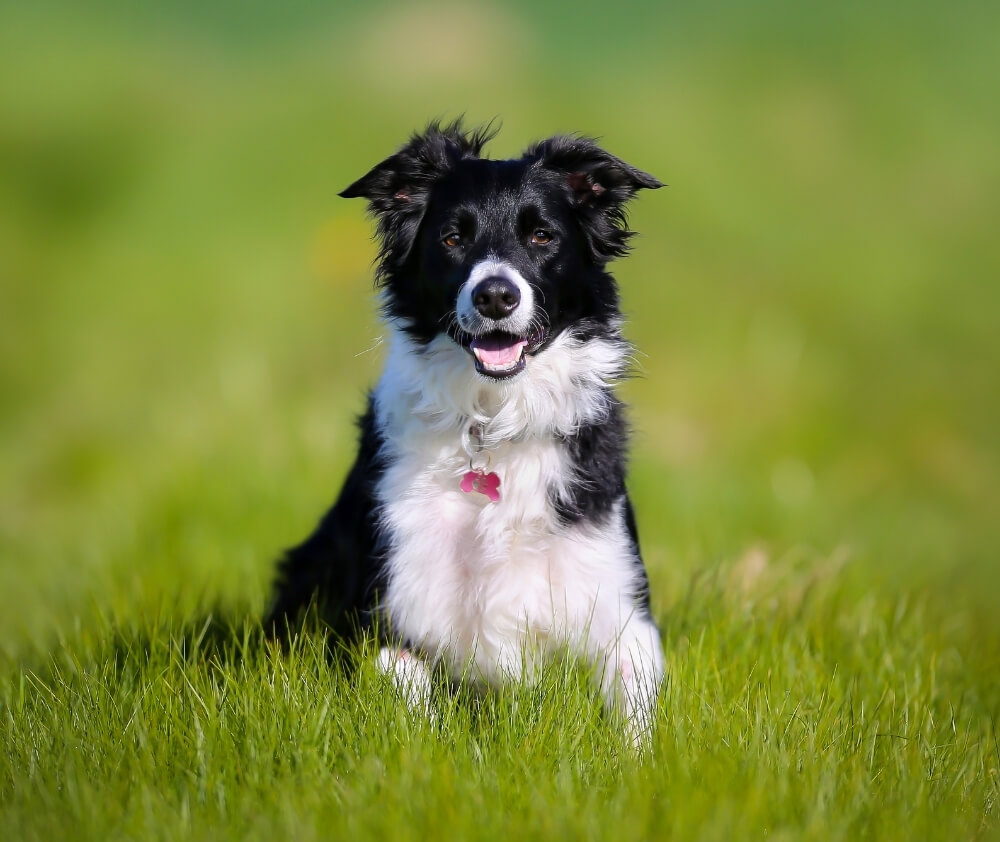Our Services
From routine care to complex surgery and specialized medicine, we’re ready and able to care for your favorite companion. We do it in a warm and cozy environment that will set both you and your pet at ease.
Quality Care
Our goal is to help your pet live the longest, healthiest life possible. That’s why we’ve made Vernon Hills Animal Hospital one of the cleanest, most comfortable pet hospitals in the area.
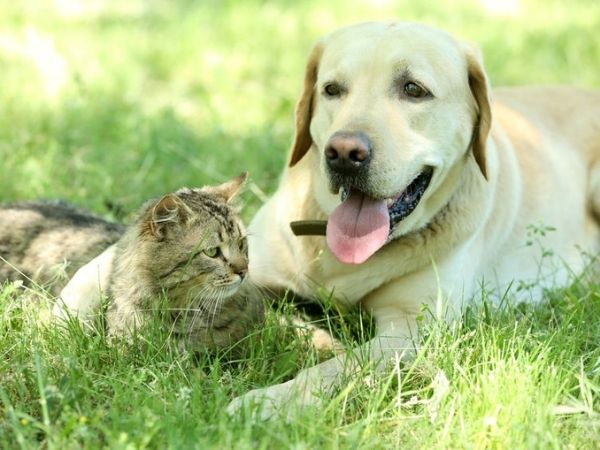
Annual Wellness Exams
Of all the things we do here at Vernon Hills Animal Hospital, giving your pet a thorough physical exam every year is probably the most important. Sometimes it’s easy to forget that a dog or cat ages approximately seven years to our one. That means that a pet that looked perfect last year may have dental disease and a heart murmur this year. By catching problems in the early stages, we can help your pet avoid serious health problems later.
Read More
Also, dogs and cats can have painful conditions of which the owner isn’t even aware. Severe dental disease, infected ears, and arthritis–problems that many owners may not know exist–are things we commonly diagnose during routine physical exams. They can make your pet miserable and affect his or her quality of life. Once discovered, most of these problems are fairly easy to solve or control.
Heartworm tests and heartworm prevention are a necessary part of every annual visit. Besides dogs, cats need to be put on heartworm prevention. Dogs and cats that go outdoors also need a stool sample check. Fecal exams will uncover parasitic infections, which can cause loose stools, loss of appetite and can theoretically infect us.
We will also talk to you about flea and tick control, and we can customize a preventive program for your pet to help avoid the misery (for your dog or cat and you) of a flea or tick infestation.
We know you don’t want to neglect your pet’s good health. If he or she hasn’t been examined within the past year, call today for an appointment.
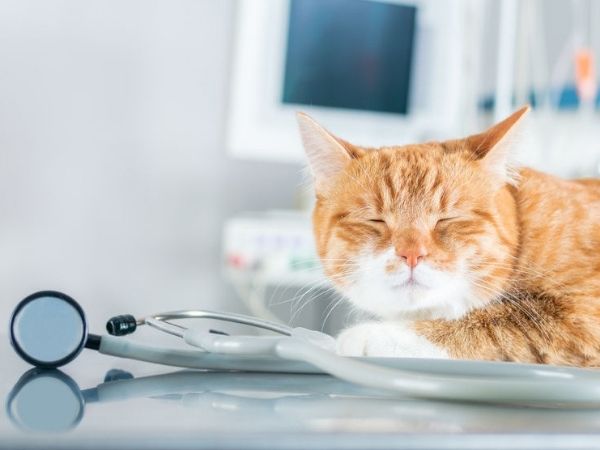
General Surgery
We do lots of different kinds of surgery here at Vernon Hills Animal Hospital, from repairing a simple laceration to exploratory abdominal surgery and lump removal to knee surgery. Surgical procedures are done using sterile techniques, which means that we use a sterile instrument pack and a sterile cap, gown, and gloves. The patient is clipped, prepped with surgical scrub, and covered with a sterile drape. This technique is used for the same reason that a human hospital uses it — it helps ensure that your pet will not be exposed to harmful bacteria which could cause an infection.
Read More
We use the most effective and safe anesthetic possible. The anesthetic gas we use is called Sevoflurane. It is exhaled rather than metabolized, which allows your pet to wake up quickly and helps prevent “hangover”. We monitor your pet’s vital signs during anesthesia (see below). The respiratory rate, heart rate, electrocardiogram, oxygen in the blood, CO2, blood pressure, and temperature are monitored using several different kinds of instruments. This helps us adjust the level of anesthesia so that we don’t give too little or too much.
After surgery, your pet will receive an injection for pain and/or will be sent home with pain medication. Dogs and cats will recover more quickly if they are happy and comfortable.
During surgery, our patients are connected to a VMED Surgical Monitor. This device continuously reads and records the animal’s heart rate, electrocardiogram, respiratory rate, serum oxygen level, CO2 levels at both inspiration and expiration, blood pressure, and temperature. It transmits the data to a flat-screen display using Bluetooth technology so the surgeon can see everything at a glance. This allows us to monitor and adjust the level of anesthesia based on the procedure and the patient’s condition.
The photo below shows the actual readout from an anesthetized patient.
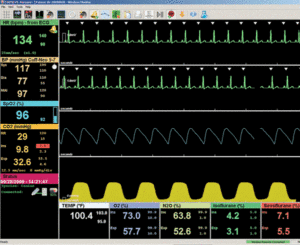
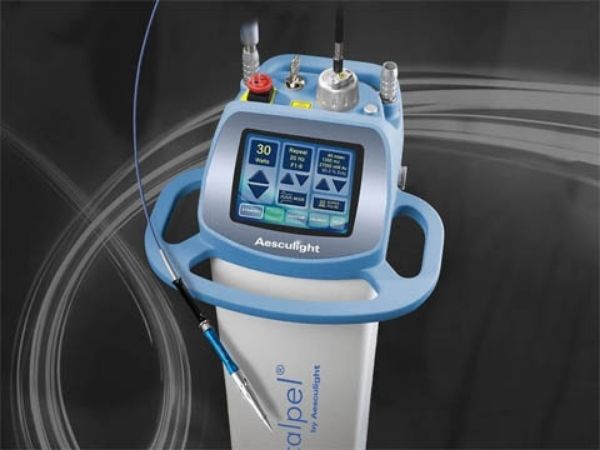
Laser Surgery
We offer laser surgery. Lasers have been used routinely in human medicine and surgery for over 30 years but have now become available for veterinary medicine. Since we have been using the laser, we’ve been thrilled with its capabilities, and we think you will be too.
Read More
Why use a laser?
- A laser uses a beam of light to cut through tissues. This reduces pain by sealing nerve endings.
- The beam of light also seals blood vessels and lymphatics, which can make surgery virtually bloodless and minimize swelling after surgery.
- Because the beam of light is so concentrated, the dissection of tissues can be more precise. This helps remove the unhealthy tissue and aids in preserving the surrounding healthy tissue.
- The laser beam can actually kill bacteria and tumor cells in the surgical field.
All of these factors decrease swelling, pain, and bleeding, which means your pet will return to his normal activities more quickly.
Most surgical procedures can now be done using the laser. Here are just some examples:
- Spaying and castrating dogs and cats
- Declawing cats
- Eyelid surgery
- Skin growth removal
- Tumors in the mouth
- Invasive tumors
- Bladder and other abdominal surgery
- Removing extra eyelashes
- Treating lick granulomas
- Mastectomy
The scalpel is not obsolete by any means, but we prefer to use the laser for many procedures. Using the laser can decrease surgery time over using a scalpel. Since surgery is priced by the time it takes, it actually doesn’t cost you more if we use the laser. That’s because we spend less time controlling bleeding.

Exotic Animal Medicine & Surgery
Exotic animals are defined as any pet other than the traditional dogs and cats. People keep an incredibly wide variety of exotic pets, and we at Vernon Hills Animal Hospital are experienced with the more typical ones commonly kept as pets.
Read More
A big part of keeping exotic pets healthy is providing proper housing and nutrition. We are experienced keeping these animals ourselves and have good advice and written handouts on proper care. An important step during each first visit is going over in detail the diet and housing of each pet and recommending improvements whenever possible.
Frequently Asked Questions
Q: What species of exotics do you treat? Are there any species you don’t treat?
A: We treat small mammals such as rabbits, ferrets, guinea pigs, and rats.
Animals we don’t treat include reptiles, amphibians, birds, hedgehogs, chinchillas, hamsters, mice, sugar gliders, and anything considered illegal to own in Illinois. This list includes wild mammals native to Illinois (raccoons, opossums, skunks and so on), bears, big cats (lions, tigers, ocelots, bobcats), wild members of the dog family (foxes, wolves, coyotes), and venomous reptiles. Animals we don’t treat because they require extensive special equipment and facilities to handle and house include domestic pigs, monkeys, fish, and invertebrates.
Q: What can you do for my exotic pet?
A: We always start with a patient history. We need to know where the patient came from, how it is housed, and what it is fed. We offer advice on recommended housing and diets. We then perform a thorough physical examination and discuss our findings. Often we will recommend blood tests, parasite checks, bacterial cultures, or radiographs (X-rays) to make a more definitive diagnosis. Treatment options, potential benefits, and estimated costs are discussed before the actual treatment is begun. We offer surgery and hospitalization when indicated.
Q: Is it worth it to treat my pet?
A: We believe that every life has value. We recognize that all pets have an emotional value to the owner far beyond the purchase price. We treat every pet, no matter how tiny, common, or inexpensive as if it were our own. We keep pets like these ourselves and know what it feels like when one of our little buddies gets sick. At the same time, we never pressure a client to accept more aggressive treatment than they are comfortable with.
Q: What if the disease is serious or life threatening?
A: We can’t cure every patient, but our goal always is to prevent suffering. In some cases, we can offer palliative treatment to make sick patients as comfortable as possible for as long as possible. When that is no longer an option, we can provide humane euthanasia.
Q: What if I have questions?
A: Please call or contact us, and we will tell you as much as we can over the phone. Some questions are complex, and we may refer you to a book, society, or web page for detailed information. Remember that it is usually impossible to make a diagnosis over the phone. It surprises us how often we expect one disease from the described symptoms, only to find something completely unexpected when we see the patient.
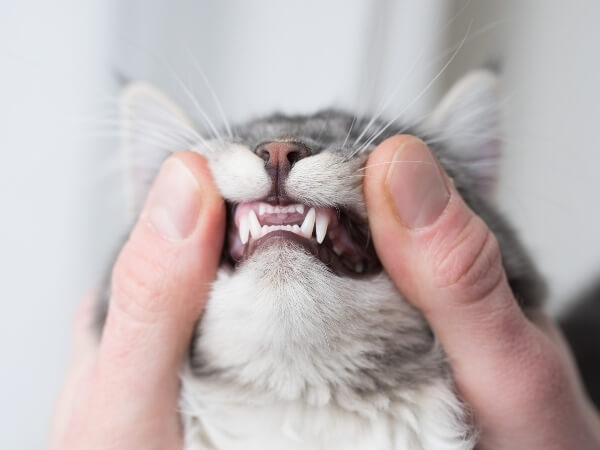
Dentistry
We’re big on dentistry here at Vernon Hills Animal Hospital. That’s because dental disease affects and lowers the quality of life of more pets than any other disease. Swollen gums and infected teeth cause your dog or cat’s immune system to work overtime to fight off the germs that are common in periodontal disease. It’s not unusual for an owner to tell us that after their pet’s teeth were cleaned, they “acted like a puppy (or kitten) again.”
Read More
Dental patients do not need a deep plane of anesthesia for this procedure. Using local anesthesia for extractions helps us keep the patient comfortable under light anesthesia. We use the safest anesthetic available, a gas called Sevoflurane. Even very old patients tolerate this procedure quite well. We do recommend a pre-op blood panel to evaluate each patient’s health. Your pet can go home the same day, and is alert and ready to greet you when you pick him or her up!
To check out dental before and after photos, click here.
To rate your pet’s dental health, click here.
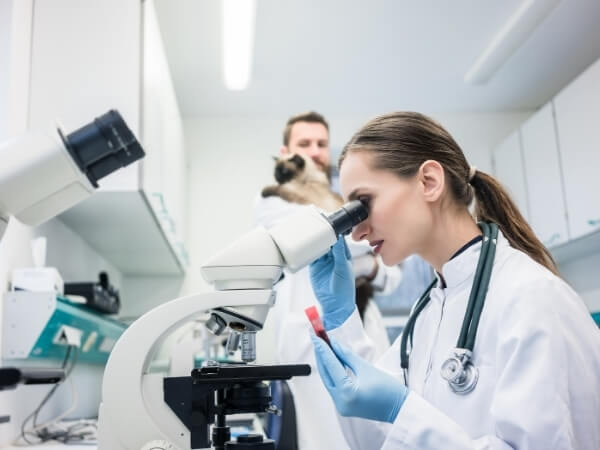
Laboratory
Doing laboratory tests can help us diagnose your pet’s problem more quickly and accurately. Many blood tests can be run in our office. This allows us to give you results within about 30 minutes. More extensive testing can be done by sending blood to an outside laboratory. Antech Veterinary Laboratory picks up samples twice a day and issues routine reports the following morning or STAT reports the same day.
Read More
We do a lot of cytology–looking at stained cells under the microscope. This can tell us what is causing your pet’s ear infection or if that lump on their back needs to be removed. Obtaining the sample may be as simple as using a Q-tip to swab an ear or doing a fine needle aspirate of a lump. Sometimes surgery is required to obtain a sample, and a surgical biopsy is performed. These tissues for histopathology are sent to a board-certified pathologist who examines them and sends us a complete report.
We also do other laboratory tests, such as ECGs, urinalysis, fecal examinations, skin scrapings to look for parasites, bacterial culture and antibiotic sensitivity testing, fungal culture, testing the mineral content of bladder stones, and more.
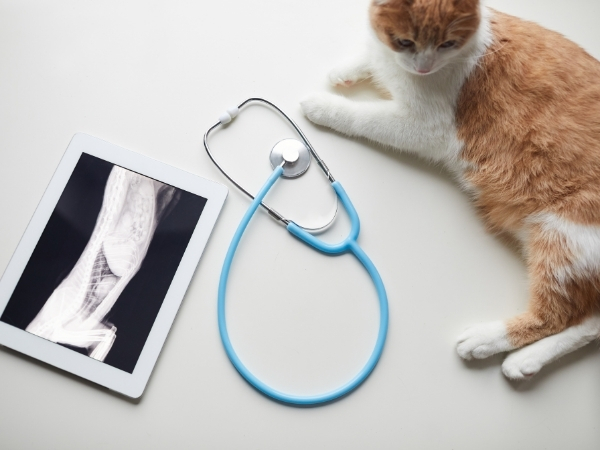
X-Ray
X-rays, or radiographs, are one of the most common diagnostic procedures done at Vernon Hills Animal Hospital. Most X-rays can be taken while a pet is awake, but some procedures, such as dental and hip X-rays, require anesthesia. X-rays are painless and give us valuable information. We have digital radiography in our facility.
Digital dental X-rays are very useful in determining things such as if your pet has any abscessed teeth or broken roots. They allow us to detect diseased teeth that may appear normal or treat and often save obviously diseased teeth.
Click here to see some interesting X-rays!
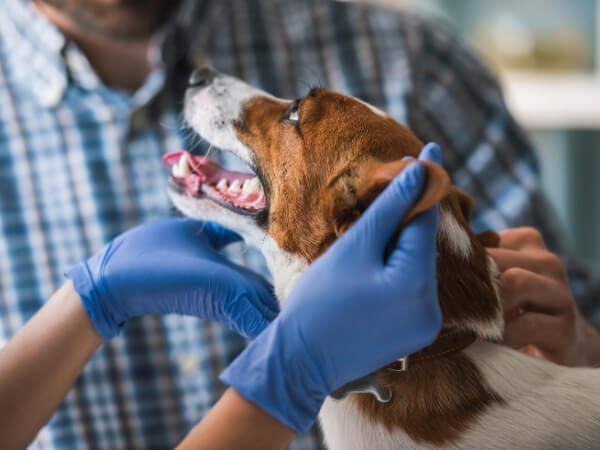
Hospitalization
There may be times when your pet needs to stay in the hospital, such as after having surgery or if they are sick. We try to make their stay as pleasant as possible for both of you. Our technicians and veterinary assistants provide nursing care to help keep our patients clean and comfortable while also monitoring their progress. We provide each patient with soft clean mats to sleep on. Dogs are walked outside several times daily. Post-op patients are given medication for pain control.
Sometimes a pet needs to stay in the hospital and have medical care at night. We refer these patients to one of the local emergency clinics. This is the best way to provide 24-hour professional care and gives your pet the best chance for his continuing recovery.
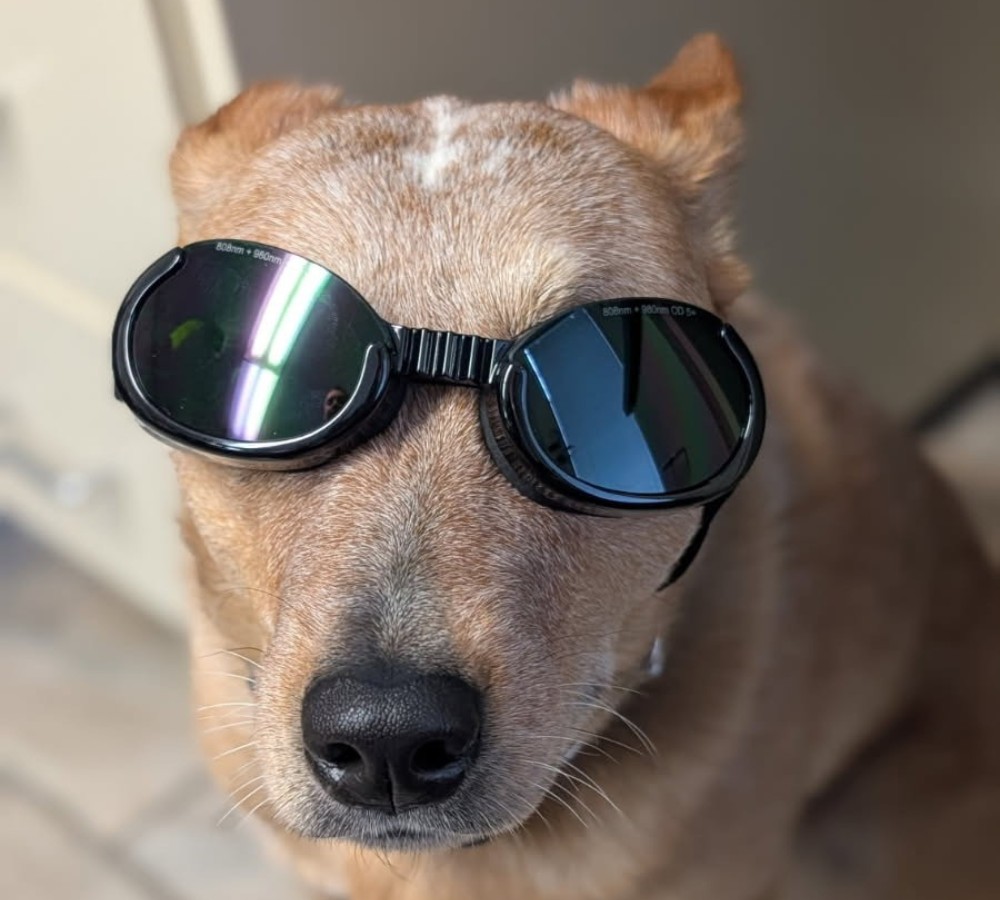
Laser Therapy
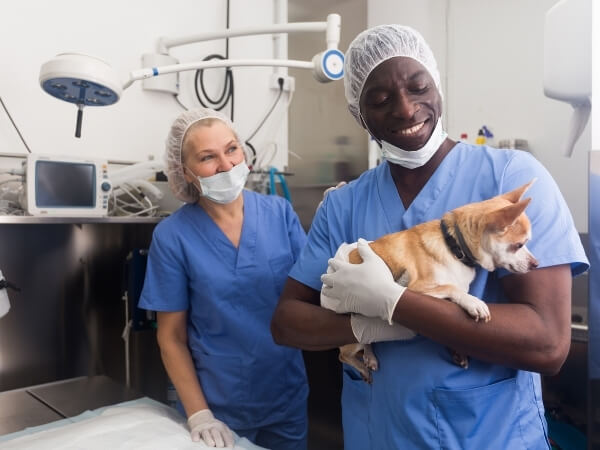
Referrals to Specialists
We are very fortunate to have many competent veterinary specialists in Lake County, including oncologists, radiologists, surgeons, ophthalmologists, internal medicine specialists, cardiologists, dermatologists, and physical therapists. Examples of situations in which we recommend a referral to one of these specialists would be if your pet needs:
- Endoscopy
- Fracture Repair
- Complicated Soft Tissue Surgery
- CT Scan & MRI
- Ultrasound
- Cancer Evaluation & Therapy
- Allergy Testing
- Cardiac Evaluation & Ultrasound
- Evaluation of an Unusual Illness
- Myelogram

